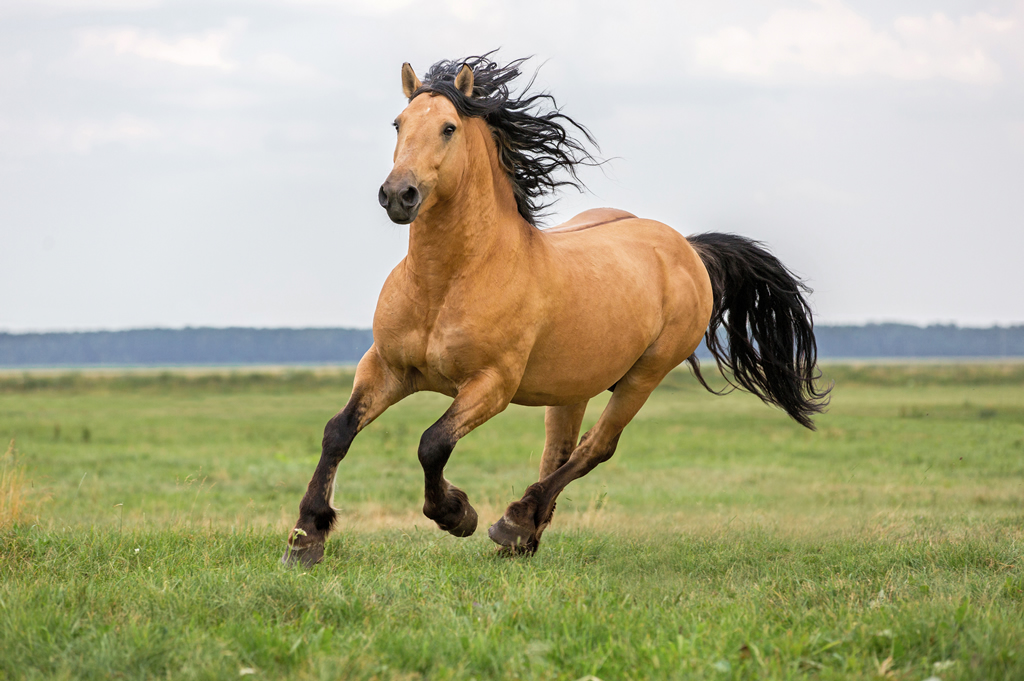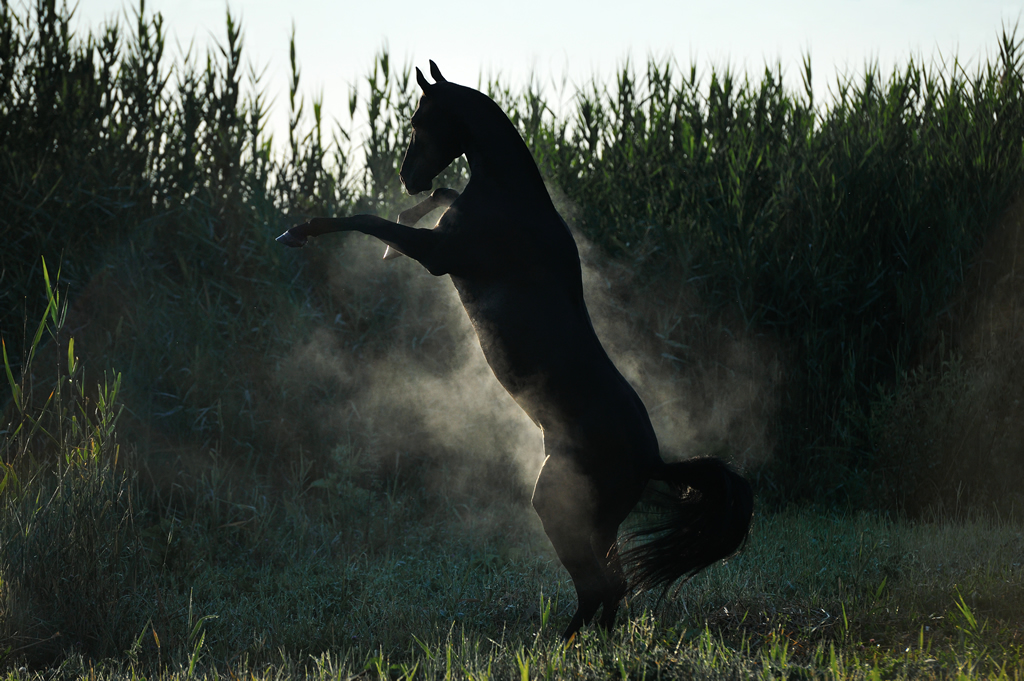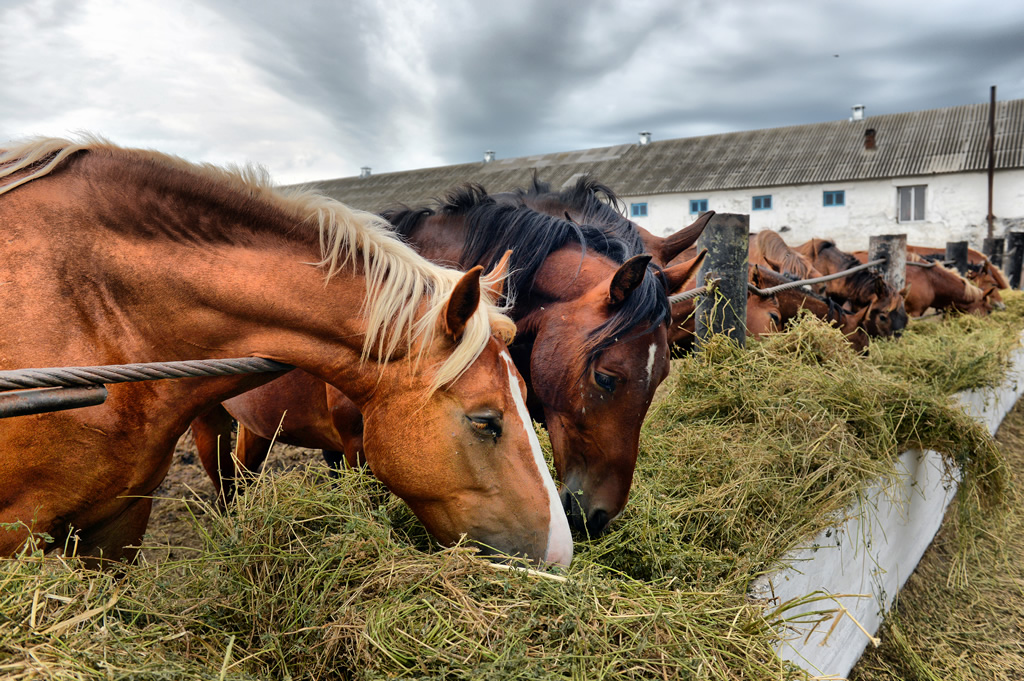Electrolytes are incredibly important when maintaining a healthy horse, and are important for most bodily functions! We’ve spoken to our horse health expert all about the importance of electrolytes, and how you can help to ensure your horse doesn’t suffer from a deficiency.
What are electrolytes?

Electrolytes are important for most of your horse’s bodily functions. They’re vital in maintaining osmotic pressure, fluid balance, as well as nerve and muscle activity. There are five main electrolytes required by horses:
– Sodium
– Chloride
– Potassium
– Magnesium
– Calcium
How are electrolytes lost?
Electrolytes are lost daily through a horse’s urine, faeces and breath. A diet of grass, hay and/or commercial feed will generally supply adequate amounts of most electrolytes for horses at pasture or in light work. The one electrolyte most likely to be deficient is sodium, or salt. Studies show that horses do not regulate their salt consumption freely when provided with salt licks or blocks.
Horses at work

A lot of electrolytes are lost through sweat, so horses in work will generally lose more electrolytes than what can be replaced by their diet. During exercise, horses loses large quantities of sodium, chloride and potassium through their sweat. Smaller quantities of magnesium and calcium are also lost. When it comes to hydration, sodium is the most important electrolyte, as this is the main regulator of thirst.
Symptoms of electrolyte deficiency
Electrolyte deficiency often goes unrecognised in horses, but can cause poor performance or digestive disturbance. These deficiencies can also cause a horse to be prone to high muscle enzymes, reduced sweating, tying up, slow recovery after exercise, or “thumps”. Thumps present similarly to hiccups in humans but can have more serious consequences. A calcium deficiency could also put your horse at a higher risk to fractures.
It may take weeks or even months before an electrolyte deficiency becomes a problem. Unfortunately, it can take just as long to put right. A horse with electrolyte deficiency may be lethargic, depressed, have a dull coat, sunken eyes, or pass dark urine.
Dehydration

Excessive loss of water and electrolytes can lead to dehydration, which could be fatal for your horse. Look out for the following symptoms of a dehydrated horse:
– Dull expression
– Glazed-over eyes
– Dry mucous membrane
– Dry gums.
Electrolyte supplements for horses
Work horses should have their diets supplemented with additional electrolytes in order to remain healthy. The level of supplementation should also be adjusted in line with the sweat loss of the horse, which should assist in recovery and keep your horse healthy and hydrated.
Remember to consider the intensity of your horse’s workload, their diet, and other environmental factors such as heat and humidity to establish what supplementation is required. If you’re unsure, it could be a good idea to ask your vet!
When should I give my horse electrolyte supplements?
After establishing what electrolytes your horse needs, it’s important to work out how much supplementation they will need. It’s usually best to supplement the same quantity of electrolytes every day as part of your horse’s daily routine. This way, your horse’s body will use the electrolytes it needs, and excrete any excess.
What quantity of electrolytes should I be giving my horse?

Attempting to feed excessive quantities of electrolytes could put horses off their feed, especially if they aren’t used to the supplements. Excessive supplementation can cause gastric upset, including ulcers, and could also cause your horse to drink too much.
However, it is rare for horses to be fed excessive amounts of electrolytes and in most cases, they are under supplemented. It’s usually better to feed slightly more electrolytes than a horse needs to allow the body to remove any excess. If you’re unsure, always consult your vet before providing electrolyte supplements to your horse.
How are electrolytes administered?
Electrolytes come in the form of isotonic solutions, can be mixed in with feeds, or can be administered in the form of a paste. There is a variety of supplements available on the market; ensure you purchase a product that is well-balanced. Alternatively, you could prepare a supplement at home.
We hope this blog has given you some insight into the importance of electrolytes for your horse! If you’re planning to make any changes to your horse’s diet, we’d always recommend consulting your vet first.
If you’re a horse owner, you might want to think about taking out insurance for your horse! At The Insurance Emporium, our Defaqto 5 Star Rated Horse Insurance includes over for Death, Theft Or Straying as standard. Then, you can customise your cover with our range of Optional Benefits. You could even receive up to 30% discount* on your policy! Head on down to The Insurance Emporium to see if we have the right cover for you and your horse.
* The 30% discount is made up of 20% Introductory Discount plus 10% Multi-horse Discount (if appropriate). The Introductory Discount is available for the first 12 premium payments on lunar monthly and calendar monthly policies, or one premium payment on annual policies.
All content provided on this blog is for informational purposes only. We make no representations as to the accuracy or completeness of any information on this site or found by following any link on this site. We will not be liable for any errors or omissions in this information nor for the availability of this information. We will not be liable for any loss, injury or damage arising from the display or use of this information. This policy is subject to change at any time.


